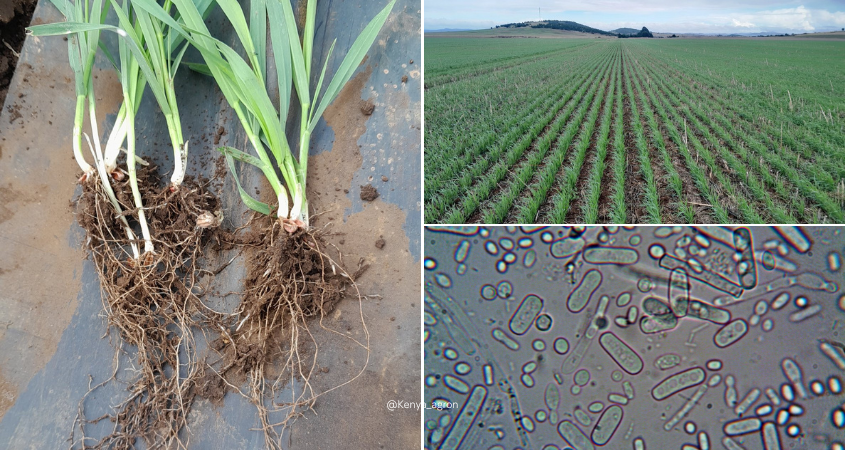
Beneficial microbes—including bacteria, fungi, and other microorganisms—form intricate relationships with plants, driving growth, health, and resilience. These tiny allies play essential roles in sustainable agriculture by supporting nutrient availability, disease suppression, and stress tolerance. Let’s explore their diverse contributions to soil ecosystems:
Certain bacteria, like Rhizobium and Azotobacter, fix atmospheric nitrogen, converting it into forms that plants can absorb. This process enriches the soil with bioavailable nitrogen, reducing the need for synthetic nitrogen fertilisers.
Mycorrhizal fungi and phosphorus-solubilising bacteria release enzymes that break down soil-bound phosphorus, making it available to plants. This enhanced phosphorus availability supports energy transfer, root development, and flowering, which is vital for optimal plant productivity.
Microbial decomposers break down organic matter, releasing essential nutrients such as nitrogen, phosphorus, and potassium back into the soil. This process enriches the soil nutrient pool, ensuring a continuous supply of nutrients throughout the growing season.
Beneficial microbes, such as Trichoderma and Pseudomonas, produce antimicrobial compounds and compete with harmful pathogens for resources. This natural biocontrol mechanism reduces the prevalence of plant diseases and minimises the reliance on chemical pesticides.
The hyphal networks of mycorrhizal fungi contribute to soil aggregation, creating stable soil structures. These aggregates enhance water infiltration, root penetration, and nutrient retention, improving long-term soil health.
Beneficial microbes produce plant growth-promoting hormones, such as auxins and cytokinins, which enhance root growth and improve plant resilience to abiotic stresses like drought, salinity, and extreme temperatures.
In summary, incorporating beneficial microbes into agricultural practices unlocks their potential to enhance nutrient availability, suppress diseases, and improve stress tolerance. By embracing these beneficial microbes, farmers and agronomists can reduce dependency on chemical inputs, promote sustainable farming, and ensure long-term soil and plant health.
At Cropnuts, we’re dedicated to helping farmers and agronomists harness the power of beneficial microbes for sustainable agriculture. Contact us at support@cropnuts.com to learn more about microbial soil health strategies tailored to your crops.
Grow more with less.
#savesoil #soilhealth #soilscience #sustainability #agriculture #agronomy
Order our services and get to know how to improve your soil for better yeilds.